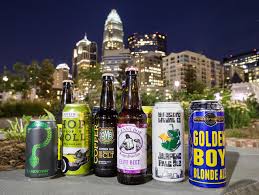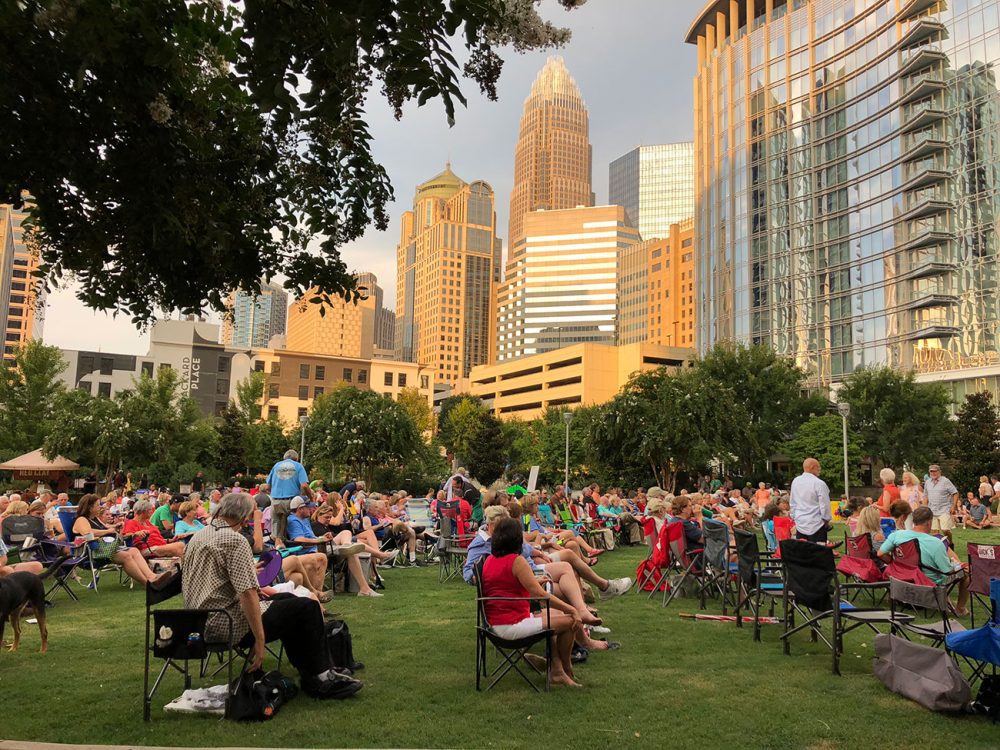About the city of Charlotte
As one of the Southeast’s premier places to live, more than 1,000,000 people reside within Charlotte’s borders, approximately 2.4 million within the metro area, and 7.8 million within a 100-mile radius. Charlotte was the 7th most growing city in the United States in 2016-2017 according to the U.S. Census Bureau, and is home to 292 of the top Fortune 500 companies and more than 340 foreign firms. Financial experts know Charlotte as the nation’s second largest banking center (next to New York City), with more than $362 billion in banking assets. The nation’s fifth largest urban region, Charlotte and environs have attracted more and more people who want to become part of our team.
Located in the sunny, moderate central region of the Tar Heel State, Charlotte has unlimited accessibility. Interstates 77 and 85, which intersect in Charlotte, link the city with the Great Lakes region, New England, and Florida. Interstate 40, running coast-to-coast across the United States, is only an hour north of Charlotte. A two-hour journey to the west takes you to the Blue Ridge Mountains; a three-and-a-half hour trip to the east, to Atlantic beaches. Within an hour’s drive east of the city are some of the world’s best golf courses.
Charlotte Links:
- Charlotte’s Got A Lot
- Charlotte Agenda
- Charlotte on the Cheap
- Charlotte.com
- Charlotte Chamber of Commerce
- Find Charlotte Apartments
The Neighborhoods of Charlotte
Ballantyne, another upscale area, is a planned mixed-use development that has grown exponentially in recent years and lies in the southernmost part of Charlotte, along the North and South Carolina border. Like South Park, Ballantyne has a high concentration of both impressive homes and commercial development. The Ballantyne Country Club, Golf course and strong community makes this South Charlotte location ideal for growing families.
Dilworth is centered on East Boulevard. It is popular with Charlotte’s young professionals, who are drawn to its historic turn of the century architecture and traditional neighborhood feel.
Eastland, a neighborhood that developed primarily during the 1960s and 70s, comprises a majority of the east side of the city. Demographics have changed much over the years and currently Eastland is home to one of Charlotte’s largest Latino communities.
Elizabeth takes its name from Elizabeth College, a small Lutheran women’s college founded in 1897 on the present-day site of Presbyterian Hospital. It is one of the most fashionable residential areas in Charlotte.
Myers Park is home to some of the city’s most desirable zip codes. Filled with some of Charlotte’s oldest grandest houses and streets lined with towering oaks.
NoDa (shortened from North Davidson) is the city’s “arts district” on and around North Davidson Street, located just north of Uptown. Formerly an area of textile manufacturing and mill workers’ residences, the area has seen a rebirth as a center for arts and entertainment.
Uptown is the name of Charlotte’s downtown district. “Uptown” is a late 20th century name given to the original city. At the center of Uptown is The Square, the intersection of Trade and Tryon Streets and the point of convergence of all four wards. Many of the city’s skyscrapers are located uptown, as well as Bank of America Stadium, home of the Carolina Panthers NFL team, and the Spectrum Center, home of the Charlotte Hornets NBA team. Johnson & Wales University, the Museum of the New South and the Mint Museum of Craft and Design can also be found here, as well as the city and county government district.
South End takes its name from South Boulevard. Today its former industrial buildings and mills are loft condominiums, restaurants, shops, and offices.
South Park, located in south central Charlotte, is both an upscale residential and commercial area. The area’s name derives from the fashionable South Park Mall, located at the intersection of Sharon and Fairview Roads.
University City comprises the northeastern part of Charlotte. If autonomous, it would be one of North Carolina’s largest cities with nearly 200,000 residents. The largely suburban University City is the home of UNC Charlotte. University City is also home to University Research Park, a 3,200 acre (13 km²) industrial park. Additionally, it is home to Lowe’s Motor Speedway and the state’s largest tourist attraction, Concord Mills, a 1.4 million square foot shopping mall that attracts more than 15 million visitors a year.
Why Choose UNC Charlotte?
The environment at UNC Charlotte is one of balance: state-of-the-art facilities juxtaposed with contemporary architecture alongside scenic natural resources. The light rail connects the main campus to uptown Charlotte and the Dubois Center at UNC Charlotte Center City, offering the excitement of city living – with acclaimed dining, sports, shopping and entertainment - paired with a warm sense of community for which Charlotte is known.
UNC Charlotte enjoys a close relationship with the Queen City’s thriving business community, who are partners to help train, educate, hire and promote graduate students.


